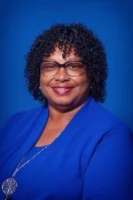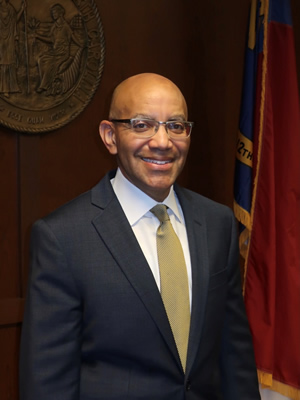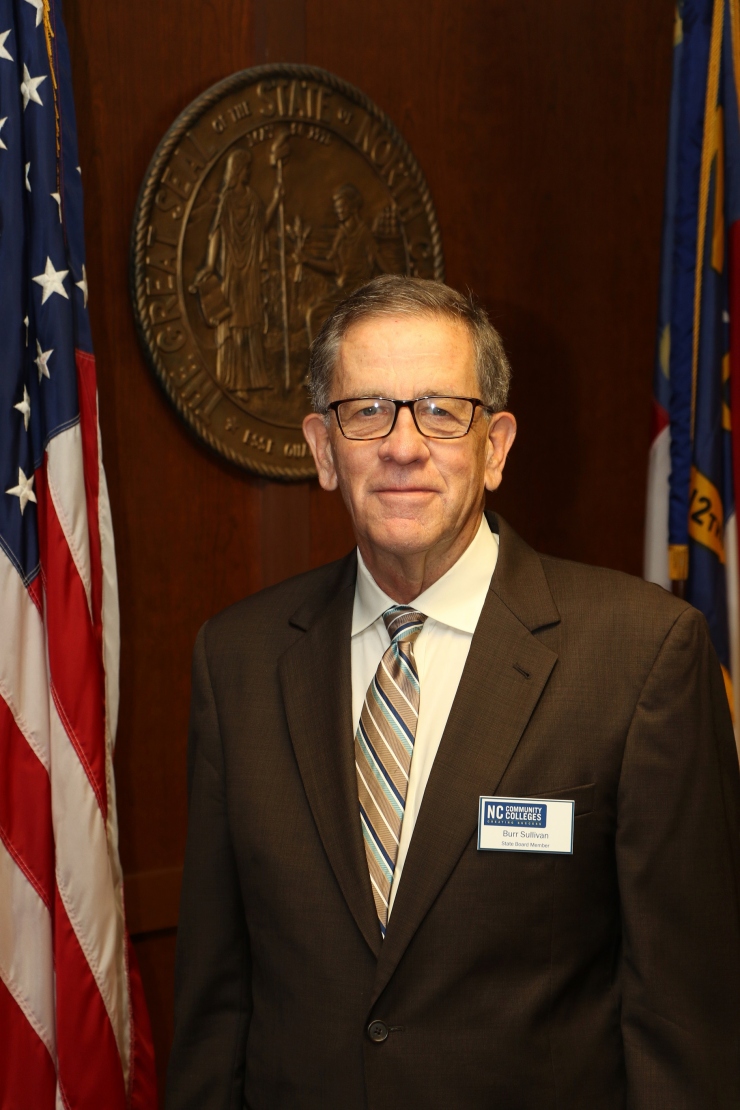
Spotlight on Community College Leaders:
NCACCP President Dr. Mark Poarch
Having served six years as president at Caldwell Community College & Technical Institute (CCC&TI) and almost a year as president of the North Carolina Association of Community College Presidents (NCACCP), Dr. Mark Poarch has earned the ability to share great observations and insights about North Carolina community colleges. From his perspective as a community college president, the most valuable trustee is “someone who is committed to the cause [and] serving the community.” He says it is important that a trustee focus on student success, help meet the needs of their communities, be engaged with and support the work of the president and have a trusting relationship with the president to ensure the president is doing his/her job appropriately.
“Good trustees should also be engaged with campus events so they can see the positive impacts they have on students and the community. Someone who can navigate the political landscape of our communities and build relationships with stakeholders is critical.” In short, he says that a good trustee is a champion for the college.
Poarch, himself, has been a champion for community colleges for over 30 years. Prior to becoming a community college employee in 1991 at Catawba Valley Community College (CVCC), Poarch received his bachelor’s degree in business administration in 1990 while playing baseball at Western Carolina University (WCU). For approximately one year, he worked at Brevard College as an admissions representative and a recruiter in Florida and Virginia. However, he left Brevard and advanced his career working in the testing center at Catawba Valley Community College (CVCC). While there, he worked his way up as the director of testing and later as the director of student records. Simultaneously, he was working on getting his master’s degree in two-year college administration at WCU.
By 2006 and with a master’s degree now under his belt, Poarch was working at CCC&TI. He went on to receive an education specialist degree in 2011 from Appalachian State University (ASU). Until that point, Poarch had never intended to become a community college president. However, with the encouragement and influence of his mentors, he continued his education and received his doctorate from ASU in 2015. At that time, he was the Vice President of Student Services at CCC&TI. Then in July 2016, he applied for and became the president of CCC&TI, where he continues to serve.
Poarch, who is a native of the town of Lenoir in Caldwell County, says, “It’s pretty cool working in the same town you grew up in. It makes the work even more special because it gives me the opportunity to give back to a community that gave so much to me growing up.”
Over the course of this past year, Poarch has also served statewide as NCACCP president. To be successful in this demanding role, he quickly learned he had to juggle multiple priorities simultaneously. He has also had to become more organized, especially with his time. Using what he learned at a local level and expanding it to a broader audience has also been important, he says. In turn, he has strengthened his communication skills. “Communication is critical,” he says. Ensuring he includes all appropriate community college stakeholders in his communication while being clear and thorough in his deliverance has been another key to his success as NCACCP president.
Poarch has also learned to more effectively navigate during times of transition. For example, President Stith became the Community College System Office president in January 2021. Six months later, Poarch became the NCACCP president, during which time he has worked on building relationships and trust between the new faces at the State Board, the System Office and presidents who are relatively new to the System. And although he thought Covid-19 would be short-lived, he says the constant challenges it brought to our system were unexpected and unprecedented.
Legislatively, Poarch believes the funding community colleges have received over the past two years has been some of the best we have seen in recent years. He would like to see the community colleges’ three-year legislative plan carried out and, as a result, be able to show community college staff and students they are truly valued. Additionally, he would like the legislature to make sure we are equipped with 21st century technology that will meet the needs of our students. He says we must continue to market the value of our community colleges as a first-rate, first-choice option. That will be important in helping North Carolina reach the myFutureNC attainment goal of having 2 million credentialed workers in the state by 2030.
In considering the future, Poarch says students want flexible learning options. He explains that we must meet the needs of students who are juggling work, family, etc. by providing instruction in various formats, including face-to-face instruction on evenings and weekends. However, there are many challenges that come with that. He says we will have to learn how to best work with our community college, K-12 and university partners. We will also have to continue to work with shifts in population, especially in our rural areas. “Regional partnerships will be critical,” he says. “I think community colleges are going to continue to be a more critical entity in meeting the needs of the workforce in North Carolina. People are continuing to rely on community colleges. We have to have resources to be able to meet those workforce needs if we’re going to be the answer,” says Poarch.
When he is not working, Poarch likes to spend time with his family at the beach or the mountains. He and his wife, Tracy, have been married 30 years this month. They have one son, two daughters and some may be surprised to learn that he also has two grandchildren. Poarch also enjoys hunting, playing golf, and doing landscape work in his yard.








